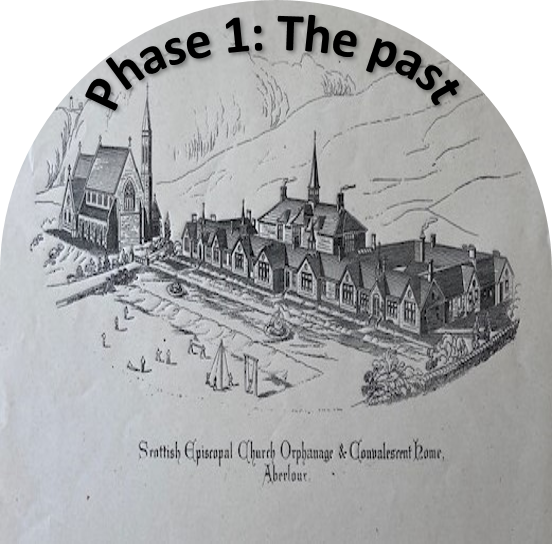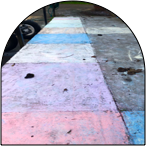Project Aims
In families, stories are often passed on; memories are shared and kept alive, which allows individuals to be in touch with their own past and the past of those with whom they live or have lived. Who looks after the everyday experiences and memories of young people in group care?
Understanding what shared experiences and memories those who live, and have lived, in residential childcare want to access, when they want to access them, and the role these memories have in their understanding of themselves and their history, will help to develop practices in the areas of record keeping, record management, and access. What is it that people want to hold on to? Are there similarities and differences between those currently living in group care environments and those who have moved on?
The ARCH Project seeks to better understand these issues through a 3-stage project (click on any stage for more information).

Examine existing archives for residential care homes in Scotland and Germany to explore how everyday and group experiences were captured historically and understand how identity and childhood was/is constructed in the care context of different nations. This period saw some radical shifts from large group care institutions to more individualised care approaches.

Understand & document what types of ‚everyday‘ information care experienced adults want to access, at what points in their lives, as well as their motivations and reasons for seeking information or contact. Work with young people and care experienced adults who live or have lived or worked in these RCHs to co-create ‚living‘ digital archives for these RCHs in the present day.

Explore the maintenance and changing content of the archives and the decision-making processes surrounding what is captured and retained for, and by, looked after children of their everyday, group experiences and the moral and ethical challenges of recording a shared past when subject to ’state‘ care. Produce a series of guidance and training resources to be used to guide care settings on creating more meaningful archives for children in state care.
The ARCH project is complex and challenging, not least because it navigates tensions between the ‘private’ and the ‘public’, including varying levels of legislation and regulation in both Germany and Scotland. The comparisons between these two countries, which broadly represent dominant approaches to residential care (social pedagogy and relationship-based practice), will provide opportunities to develop insight into how both policy and culture influence approaches to record-keeping, record-management, and access for adult care-leavers.